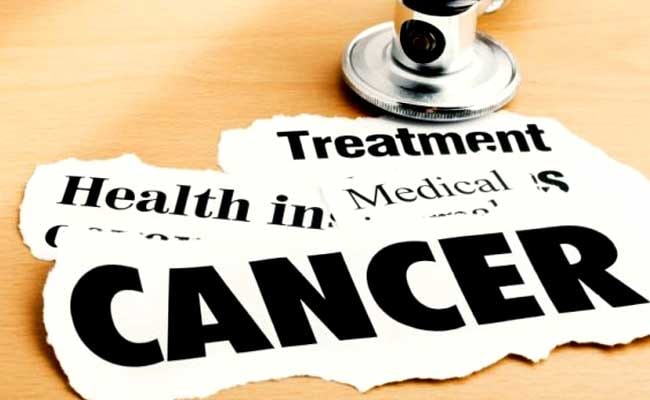
The research focused on treatment-related toxicity associated with a class of medication called thiopurines. (Representational Image)
Washington:
Researchers have determined how inherited gene variations lead to severe drug toxicity that may threaten chances for a cure in children with leukaemia, a finding which sets the stage to expand the use of a patient's genetic make-up to tailor chemotherapy.
The research focused on treatment-related toxicity associated with a class of medication called thiopurines, which are widely used as anti-cancer and immunosuppressing drugs.
Thiopurines such as mercaptopurine are indispensable for curing acute lymphoblastic leukaemia (ALL), the most common childhood cancer.
Researchers from St Jude Children's Research Hospital in US studied 270 children. They discovered four inherited variations in the NUDT15 gene that alter thiopurine metabolism and leave patients particularly sensitive to the drugs and at risk for treatment-disrupting toxicity.
One in three Japanese patients in the study carried the high-risk variations. Evidence suggests that the variations are also common in other populations across Asia and those of Hispanic ethnicity, researchers said.
They demonstrated that the NUDT15 enzyme helps to balance thiopurine activity by reducing the supply of the active drug metabolite that triggers cell death.
This check-and-balance mechanism helps to prevent the excessive death of white blood cells that put patients at high risk for infections and other serious complications.
Researchers showed the high-risk NUDT15 variants cause a 74.4 to 100 per cent loss of NUDT15 function and a toxic build-up of the drug at standard doses.
"This study is key to the development of more effective, personalised ALL therapy because it provides a clear explanation of how variations in the NUDT15 gene change drug metabolism and cause toxicity in patients," said Jun J Yang from St Jude Department of Pharmaceutical Sciences.
In the study, researchers identified three additional NUDT15 variants that were associated with reduced enzymatic activity. Humans inherit two copies of each gene, one from each parent.
Working in the laboratory, researchers reported that all four of these NUDT15 variants were associated with lower levels of enzymatic activity and imbalance of thiopurine metabolism.
Researchers checked patients enrolled in this study and found that the NUDT15 variants predicted enzyme activity and mercaptopurine tolerance. In Singapore and Japan, for example, patients with the two highest risk variants had the lowest level of enzyme activity.
"These patients had excessive levels of the active drug metabolites per mercaptopurine dose, which suggests we may reduce the drug dose to achieve the level necessary to kill leukaemia cells without causing toxicity," said Yang.
The findings were published in the journal Nature Genetics.
The research focused on treatment-related toxicity associated with a class of medication called thiopurines, which are widely used as anti-cancer and immunosuppressing drugs.
Thiopurines such as mercaptopurine are indispensable for curing acute lymphoblastic leukaemia (ALL), the most common childhood cancer.
Researchers from St Jude Children's Research Hospital in US studied 270 children. They discovered four inherited variations in the NUDT15 gene that alter thiopurine metabolism and leave patients particularly sensitive to the drugs and at risk for treatment-disrupting toxicity.
One in three Japanese patients in the study carried the high-risk variations. Evidence suggests that the variations are also common in other populations across Asia and those of Hispanic ethnicity, researchers said.
They demonstrated that the NUDT15 enzyme helps to balance thiopurine activity by reducing the supply of the active drug metabolite that triggers cell death.
This check-and-balance mechanism helps to prevent the excessive death of white blood cells that put patients at high risk for infections and other serious complications.
Researchers showed the high-risk NUDT15 variants cause a 74.4 to 100 per cent loss of NUDT15 function and a toxic build-up of the drug at standard doses.
"This study is key to the development of more effective, personalised ALL therapy because it provides a clear explanation of how variations in the NUDT15 gene change drug metabolism and cause toxicity in patients," said Jun J Yang from St Jude Department of Pharmaceutical Sciences.
In the study, researchers identified three additional NUDT15 variants that were associated with reduced enzymatic activity. Humans inherit two copies of each gene, one from each parent.
Working in the laboratory, researchers reported that all four of these NUDT15 variants were associated with lower levels of enzymatic activity and imbalance of thiopurine metabolism.
Researchers checked patients enrolled in this study and found that the NUDT15 variants predicted enzyme activity and mercaptopurine tolerance. In Singapore and Japan, for example, patients with the two highest risk variants had the lowest level of enzyme activity.
"These patients had excessive levels of the active drug metabolites per mercaptopurine dose, which suggests we may reduce the drug dose to achieve the level necessary to kill leukaemia cells without causing toxicity," said Yang.
The findings were published in the journal Nature Genetics.
Track Latest News Live on NDTV.com and get news updates from India and around the world

